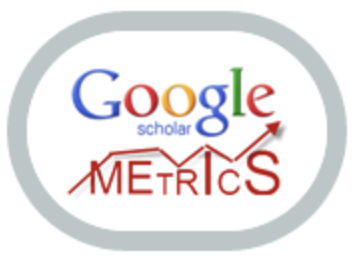Behind the thought: the irrational writing of Objeto Gritante and Água viva, by Clarice Lispector
DOI:
https://doi.org/10.29327/256399.11.2-12Keywords:
Clarice Lispector, Helène Cixous, Animal theories, Female authorshipAbstract
The work Água viva, originally called Objeto gritante, was thoroughly modified until its final version was published. Clarice’s concern with language, however, remains, and there appears to be in the description of an unnamed “behind the thought” a critique of logocentrism. Thus, the present article seeks to analyze what in the work seems to allude to a way of thinking about life, language, and animal beings that escapes from the rationalization principle and gives a new meaning to the term “animality”. Based on issues of the animal raised by Derrida (2006), the concept of perspectivism given by Viveiros de Castro (1996) and the analyses of the writer’s work made by Sammer (2020) and Roncador (2002), the article will also analyze what in Clarice’s writing seems to glimpse at a particular relationship between wo- men and animals, passing also through the concept of écriture féminine as coined by Helène Cixous (1976).
References
ADAMS, Carol J. Políticas sexuais da carne: uma teoria feminista-vegeta- riana. Tradução de Cristina Cupertino. Alaúde, 2018. Arquivo Kobo.
CIXOUS, Helène. “The laugh of the Medusa”. Tradução de Keith Cohen e Paula Cohen. In: Signs, Vol. 1, No. 4, pp. 875-893. Chicago: The University of Chicago press, 1976. Disponível em: <http://www.jstor.org/ stable/3173239?origin=JSTOR-pdf>. Acesso em: 15 de fevereiro de 2022.
CIXOUS, Helène. Reading with Clarice. Tradução de Verena Andermatt Conley. Minneapolis: University of Minnesota Press, 1990.
DERRIDA, Jacques. O animal que logo sou. Tradução de Fábio Landa. São Paulo: Editora UNESP, 2002.
DERRIDA, Jacques. L’animal que donc je suis. Paris: Galilée, 2006. DESCARTES, René. Meditações. (Os Pensadores). São Paulo: Abril Cultural,1983.
LE GUIN, Ursula. “She unnames them”. In: The New Yorker, January 21, 1985, p. 27. Disponível em: <https://www.newyorker.com/magazine/1985/01/21/ she-unnames-them>. Acesso em: 15 de fevereiro de 2022.
LISPECTOR, Clarice. Água viva: edição com manuscritos e ensaios inéditos. Rocco digital. 2019.
LISPECTOR, Clarice. A hora da estrela. Rocco, 1977. Disponível em: <https://lelivros.love/book/download-a-hora-da-estrela-clarice-lispector- epub-mobi-e-pdf/>. Acesso em: 15 de fevereiro de 2022.
LISPECTOR, Clarice. A paixão segundo G.H. Rocco, 1964. Disponível em: <https://kbook.com.br/wp-content/files_mf/paix%C3%A3osegundogh. pdf>. Acesso em: 15 de fevereiro de 2022.
LISPECTOR, Clarice. Laços de família. Rocco, 1960. Disponível em: . Acesso em: 15 de fevereiro de 2022.
LISPECTOR, Clarice. Arquivo de Clarice Lispector. In: Arquivo-Museu de Literatura da Fundação Casa Rui Barbosa, Rio de Janeiro.
LISPECTOR, Clarice. Todas as crônicas. Rocco digital, 2018.
RONCADOR, Sônia. Poéticas do empobrecimento: a escrita derradeira de
Clarice. São Paulo: Annablume, 2002.
SAMMER, Renata. Sobrenatureza, Água viva: o conceito à luz da ficção de Clarice Lispector. In: Remate de Males, V. 40, n.1. Campinas: 2020. DOI: 10.20396/remate.v40i1.8656951
VIVEIROSDECASTRO,Eduardo.“Ospronomescosmológicoseoperspectivismo ameríndio”. In: Revista Mana, vol. 2, n. 2. 1996. Disponível em: . Acesso em: 15 de fevereiro de 2022.
WEISS, David. Refusing to name the animals. Disponível em: . Acesso em: 15 de fevereiro de 2022.
Downloads
Published
How to Cite
Issue
Section
Categories
License
Copyright (c) 2022 Renata Villon

This work is licensed under a Creative Commons Attribution 4.0 International License.
Authors who publish in this journal agree to the following terms:
a) Authors retain copyright and grant the journal the right of first publication. The articles are simultaneously licensed under the Creative Commons Attribution 4.0 International Public License (CC BY 4.0) which allows the sharing of the work with acknowledgment of its authorship and initial publication in this journal.
b) Discursividades journal offers immediate free access to its content, following the principle that making scientific knowledge available to the public free of charge provides greater global democratization of knowledge.






